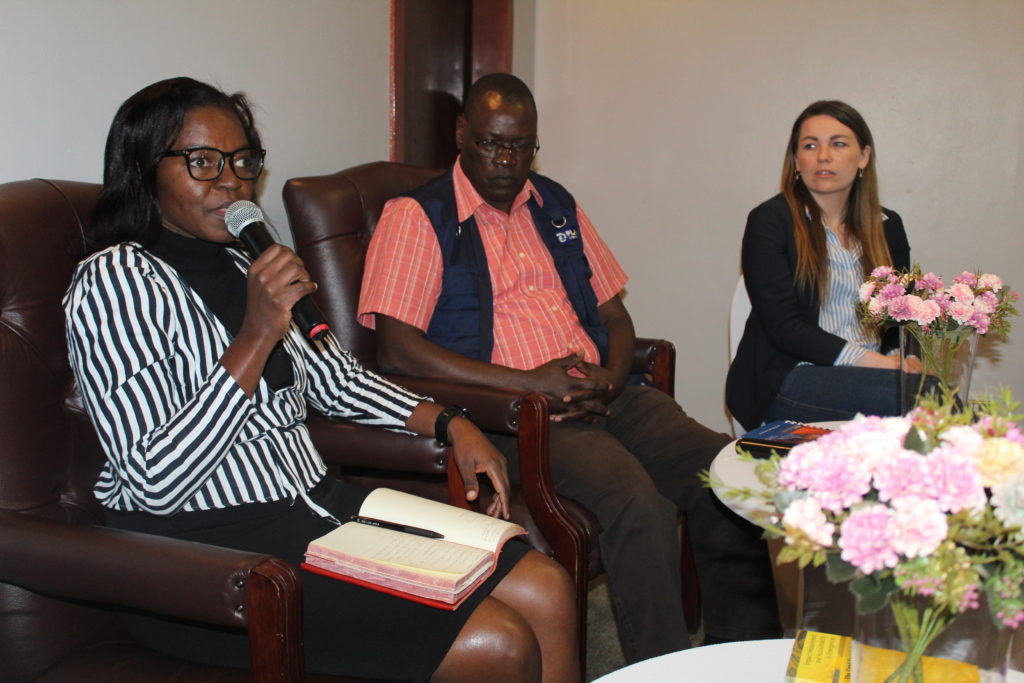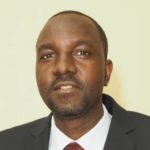Removing the blindfold: Greater transparency on SEAH through harmonised reporting
To confront sexual exploitation, abuse or harassment (SEAH) by aid workers, we need to better understand the extent of the problem across the aid system, and how this unacceptable behaviour manifests. To do this CHS Alliance and the Steering Committee for Humanitarian Response have united to initiate a SEAH Harmonised Reporting Scheme. With funding from the UK’s Foreign Commonwealth Development Office, the Scheme aims to increase transparency on SEAH by aid workers across different organisations and countries.
To find out the difference the new Harmonised Scheme is already making, and its exciting potential, we hear from a national NGO leader in Zimbabwe: Wonder Mufunda, Chief Executive Officer, Centre for Humanitarian Analytics, which is one of twenty-four organisations taking part in the pilot.
Why did you want to get involved with a scheme to harmonise SEA reporting?
For us as the Centre for Humanitarian Analytics (CHA), our mission statement is “Connecting data to decision-making and humanitarian action through Africa-adapted technologies, policy analysis and humanitarian standards”. CHA evolved out of the conviction that effective humanitarian response in Africa requires developing contextualised methods to understand, describe and evaluate the humanitarian emergencies that happen across the continent.
When we learnt about a new Scheme to harmonise reports of SEAH, we saw a really important opportunity to better understand the scale and nature of sexual misconduct in humanitarian action here in Zimbabwe, and other countries in Africa. Ultimately, this will inform our decision-making for appropriate collective action on protecting vulnerable people from SEAH.
How have you found joining and being part of the Scheme?
Being part of the Scheme strengthens our current work using data to build effective national and regional strategies to prevent sexual exploitation, abuse or harassment of vulnerable people by those who should be helping them. The data mechanisms we create support local collective and coordinated people-centred approaches that enable humanitarian decision makers to better protect people affected by crisis, especially women and girls.
The technical support from CHS Alliance and particularly their member’s Community of Practice on SEAH has already enabled us to reshape our internal reporting systems and policies. Since we joined the Scheme in November 2022, it has further helped strengthen our ability to collect, compile, manage, analyse and use SEAH data.
Carefully considering data protection is central to the Scheme – this focus has reinforced our systems to treat sensitive SEAH data carefully.

CHA facilitated high-level panel of policy dialogue on humanitarian quality and accountability.
Photo Credit: Centre for Humanitarian Analytics.
What do you hope to achieve by being part of the Scheme?
The information and analysis that will come out of the Scheme could be transformative to get to grips with understanding one of the biggest problems in humanitarian action in Africa.
At the moment, we simply don’t have the adequate quality of data to know what we’re facing; let alone what forms it takes. This is like fighting blindfolded. The more quality data we have the better we can see. See enough to chart a way to stop this unacceptable abuse happening to the people most deserving of support and care.
What do you think it would take for the Scheme to achieve real impact?
For the Scheme to reach its full potential, there is need for more organisations – particularly national and local NGOs – to get on board. We are the ones who connect the most with communities. We have trusted bonds with the people we serve. We are often the first – and only – ones to hear when things go wrong.
Together with the political will, funding partners must allocate more resources to enable national organisations to fully implement PSEAH interventions and reporting.
Since joining the Scheme, we have reached out to UNOCHA in Zimbabwe and other agencies working nationally on PSEAH to tell them about the Harmonised Scheme. We are actively encouraging other national and local NGOs to join us, so we can collectively continue to shine a light on SEAH in our own country and continent.
The SEAH Harmonised Reporting Scheme pilot phase launched in September 2022. Twenty-four organisations – including international NGOs, national NGOs and private sector organisations – are now testing out and feeding back on a proposed framework for reporting SEAH data in a harmonised way. CHS Alliance is encouraging more organisations to join and test the framework to create a system that works for all – especially for people who are victims/survivors of SEAH. The more organisations that join the Scheme, the better equipped the aid system will be to understand, prevented and responded to unacceptable abuse in aid.
Find out more details on the Scheme and how your organisation can play a part in tackling unacceptable abuse in aid.

